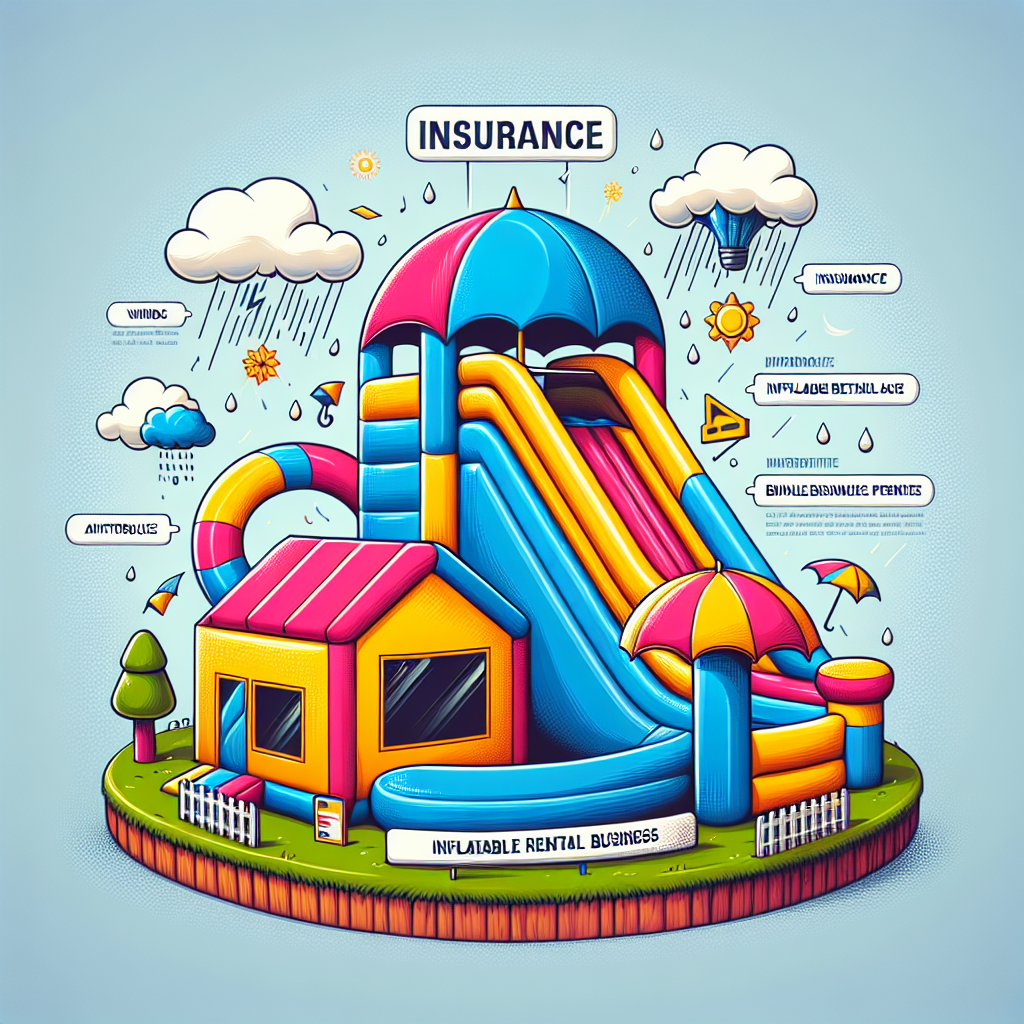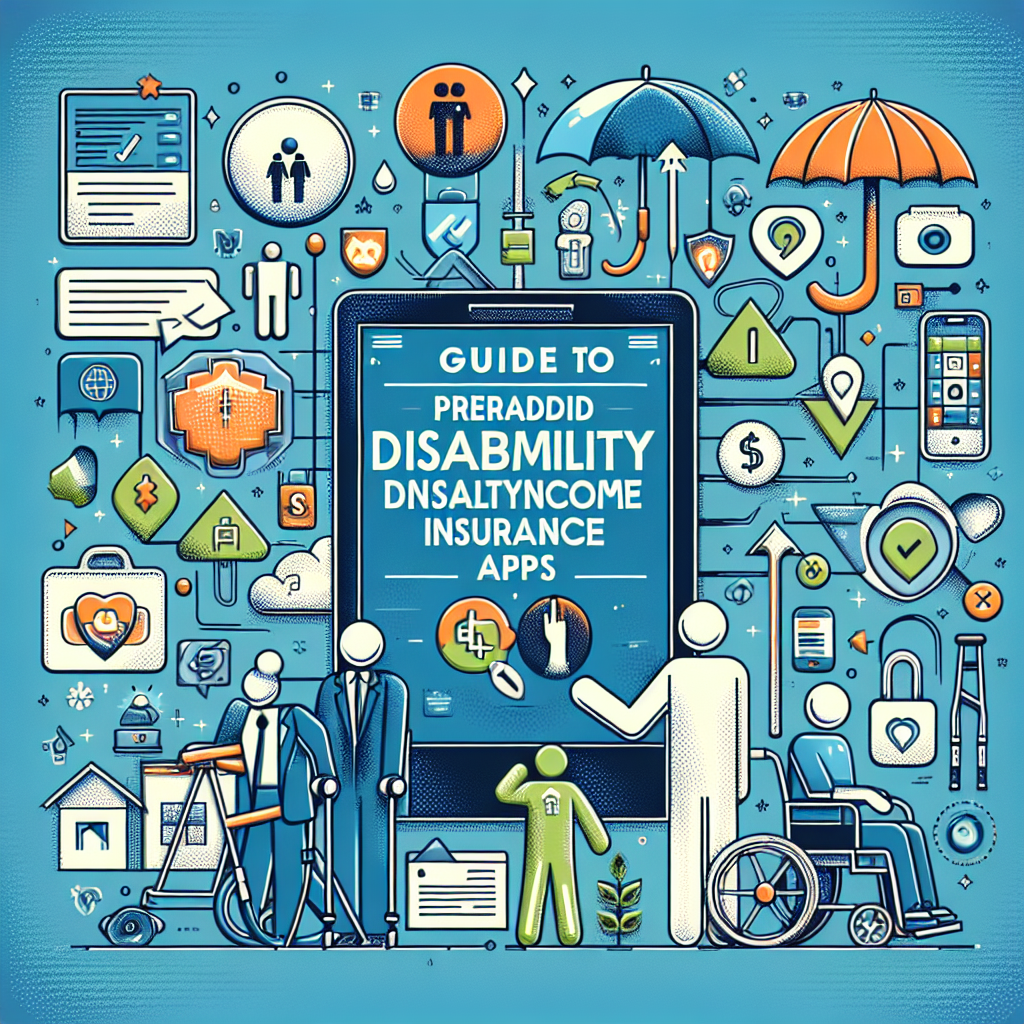Filed under Business Insurance on
Protect Your Inflatable Rental Business with Insurance

Running an inflatable rental business presents a unique set of challenges and opportunities. While offering joy and entertainment, these businesses are fraught with risks that could end up costing you dearly. This is where insurance comes in. Understanding the intricacies of insurance specific to inflatable rentals can make the difference between a thriving business and unforeseen financial distress. Let’s explore how you can safeguard your inflatable rental business with the right insurance coverage.
Understanding the Need for Insurance in the Inflatable Rental Industry
Inflatable rentals, including bounce houses, slides, and interactive games, are popular at events, fairs, and parties. However, these potential money-makers bring along significant liabilities. Accidental injuries, property damage, and equipment malfunction are just a few of the risks associated with inflatable rentals. Thus, obtaining tailored insurance coverage is not just advisable but essential to the longevity and stability of your business.
Why is Insurance Crucial?
Insurance provides a safety net that mitigates the financial impact of unforeseen incidents. It covers medical expenses in case of injuries, legal fees for lawsuits, and costs related to damaged equipment. Without insurance, one unfortunate incident could potentially bankrupt your business.
The Different Types of Insurance for Inflatable Rentals
Insurance for inflatable rental businesses isn't one-size-fits-all. You need a comprehensive approach to cover various aspects of your operations.
General Liability Insurance
This is the cornerstone of protection for any inflatable rental business. General liability insurance covers bodily injury and property damage claims that might arise during operations. For instance, if a child gets injured while playing on your rental equipment, this insurance covers medical expenses and legal fees if the family decides to sue.
Property Insurance
The physical assets of your business, including the inflatables, vehicles, and storage facilities, are valuable. Property insurance protects against loss or damage due to fire, theft, or weather-related incidents. This ensures you're not out of pocket if disaster strikes.
Product Liability Insurance
Product liability insurance is designed to protect businesses from claims related to the manufacture or sale of goods and services. If your inflatable malfunction or defect results in injury, this coverage helps manage the financial repercussions.
Commercial Auto Insurance
If your business involves the transportation of inflatable units to various locations, commercial auto insurance is indispensable. It covers the vehicles and drivers, protecting against accidents and damage during transit.
Workers’ Compensation Insurance
If you have employees, workers’ compensation insurance is usually mandatory. It covers medical expenses and lost wages if an employee gets injured while working, providing peace of mind and legal compliance.
Factors to Consider When Choosing an Insurance Policy
Selecting the right insurance policy requires due diligence to ensure comprehensive coverage at a reasonable cost. Here are some key considerations:
Evaluate Your Risks
Begin by assessing the specific risks associated with your business. Consider the location, event types, clientele, and the size of your operation. A risk assessment will guide you in choosing the most appropriate insurance policies.
Compare Premiums and Coverage
Obtaining quotes from multiple insurance providers can give you an idea of the market rates. Compare not just the premiums but also what each policy covers. Sometimes, a slightly higher premium may offer significantly better coverage.
Seek Specialized Providers
Consider insurance companies specializing in inflatables or event-based businesses. They are more likely to understand your specific needs and can offer tailored packages that generic insurers might overlook.
Current Industry Trends and Their Impact on Insurance
The inflatable rental industry is evolving rapidly, influenced by technological advancements and consumer preferences. Here's how emerging trends could affect your insurance needs:
Increased Safety Regulations
Many regions are implementing stricter safety regulations for inflatables. Complying with these regulations not only reduces the risk of accidents but might also lower your insurance premiums.
Technological Innovations
Modern inflatables are equipped with features like auto-deflation, better anchoring systems, and remote monitoring. These innovations enhance safety, potentially reducing insurance costs as the risk of accidents diminishes.
Growing Demand for Unique Experiences
The demand for more innovative and unique rental inflatables is rising. With this growth, ensure your insurance policy covers custom and high-value inflatables comprehensively.
Tips for Lowering Your Insurance Premiums
While insurance is a necessary expense, there are strategies to ensure you’re getting the best deal possible:
- Implement Safety Protocols: Consistently enforcing safety measures and training staff can reduce accident occurrences and, in turn, decrease premiums.
- Bundle Policies: Consider bundling different insurance policies (like liability and property insurance) with the same provider for discounts.
- Review Annually: Review your insurance needs and policy terms annually. Negotiating with your provider based on a history of no claims can sometimes lower rates.
- Join Industry Associations: Being part of an industry association might offer additional benefits, such as discounted insurance rates through collective bargaining.
Potential Consequences of Operating Without Insurance
Opting to operate without adequate insurance is a gamble that can have dire consequences.
Financial Repercussions
Without insurance, any claims or lawsuits could lead to overwhelming out-of-pocket expenses. Medical bills and legal fees can accumulate rapidly, potentially leading to the financial collapse of your business.
Reputation Damage
Incidents occurring underinsured or uninsured businesses can severely damage your reputation. Negative publicity can deter potential clients and harm your standing in the industry.
Legal Complications
Operating without mandatory insurance, like workers’ compensation, could result in legal penalties and fines. Additionally, you may be restricted from participating in certain events that require proof of insurance for vendor contracts.
Conclusion
Insurance for your inflatable rental business is not just a cost but an essential investment towards sustainability and security. By understanding your risks, exploring various insurance options, and staying informed on industry trends, you can safeguard your business against unforeseen challenges. In this dynamic industry, due diligence in securing comprehensive insurance coverage will empower your business to bounce back from any adverse situation, allowing you to focus on growth and customer satisfaction.





